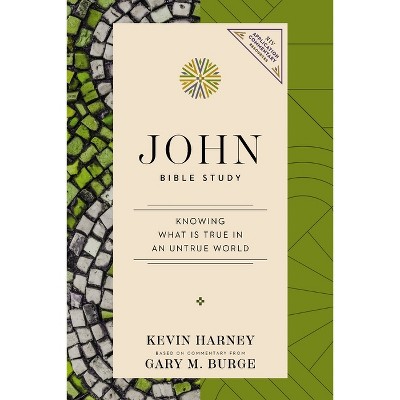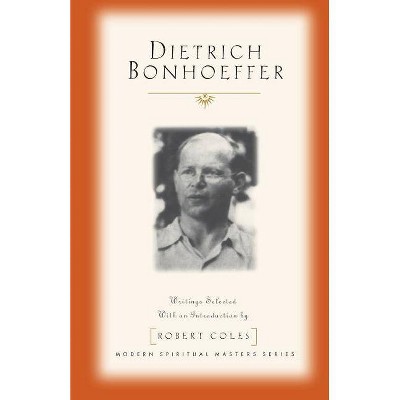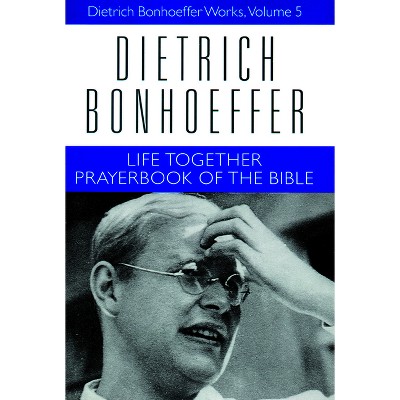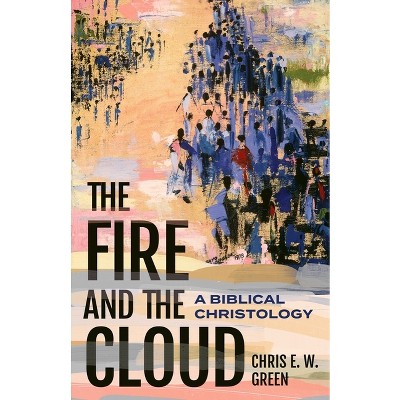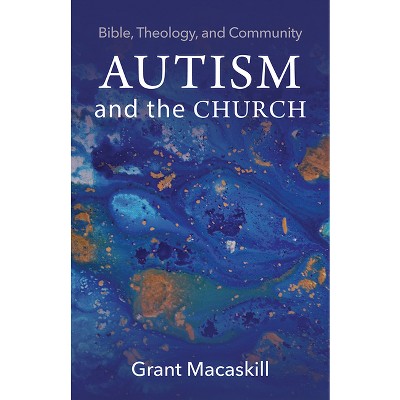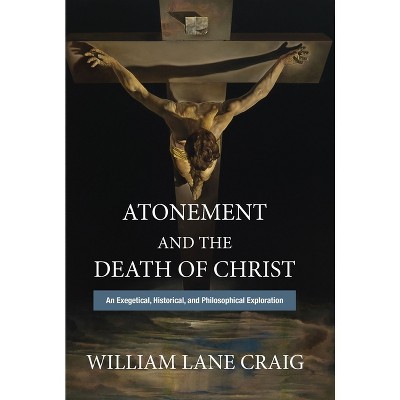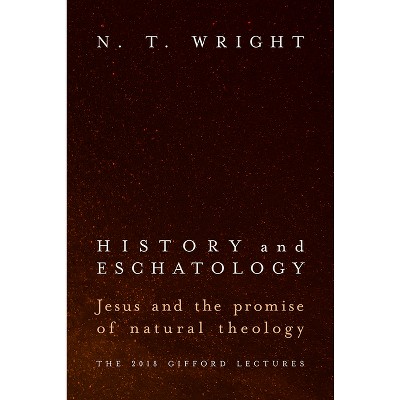Sponsored

Dietrich - by Michael Pasquarello (Paperback)
In Stock
Sponsored
About this item
Highlights
- Dietrich Bonhoeffer (1906-1945) remains one of the most enigmatic figures of the twentieth century.
- About the Author: Michael Pasquarello III is Professor of Methodist Divinity (ret.)
- 296 Pages
- Religion + Beliefs, Christian Theology
Description
About the Book
Bonhoeffer's story as a pastor and teacher of preachers provides a historical example of how the integration of theology and ministry is the fruit of wisdom cultivated through a life of discipleship with others in prayer, study, scriptural meditation, and mutual service.Book Synopsis
Dietrich Bonhoeffer (1906-1945) remains one of the most enigmatic figures of the twentieth century. His life evokes fascination, eliciting attention from a wide and diverse audience. Bonhoeffer is rightly remembered as theologian and philosopher, ethicist and political thinker, wartime activist and resister, church leader and pastor, martyr and saint. These many sides to Bonhoeffer do not give due prominence to the aspect of his life that wove all the disparate parts into a coherent whole: Bonhoeffer as preacher.
In Dietrich: Bonhoeffer and the Theology of a Preaching Life Michael Pasquarello traces the arc of Bonhoeffer's public career, demonstrating how, at every stage, Bonhoeffer focused upon preaching, both in terms of its ecclesial practice and the theology that gave it life. Pasquarello chronicles a period of preparation--Bonhoeffer's study of Luther and Barth, his struggle to reconcile practical ministry with preaching, and his discovery of preaching's ethic of resistance. Next Pasquarello describes Bonhoeffer's maturation as a preacher--his crafting a homiletic theology, as well as preaching's relationship to politics and public confession. Pasquarello follows Bonhoeffer's forced itinerancy until he became, ultimately, a preacher without any congregation at all. In the end, Bonhoeffer's life was his best sermon. Dietrich presents Bonhoeffer as an exemplar in the preaching tradition of the church. His exercise of theological and homiletical wisdom in particular times, places, and circumstances--Berlin, Barcelona, Harlem, London, Finkenwalde--reveals the particular kind of intellectual, spiritual, and moral formation required for faithful, concrete witness to the gospel in the practice of proclamation, both then and now. Bonhoeffer's story as a pastor and teacher of preachers provides a historical example of how the integration of theology and ministry is the fruit of wisdom cultivated through a life of discipleship with others in prayer, study, scriptural meditation, and mutual service.Review Quotes
Pasquarello strikes a commendable balance between breadth--providing the bigger picture of Bonhoeffer's career as a preacher--and depth, carefully analyzing his homiletical theology and individual sermons. The writing style is engaging in both allowing Bonhoeffer's voice to take centre stage and in offering connections, commentary, and conclusions that demonstrate clear authorial grasp of the subject matter.
--Javier A. Garcia "The Journal of Theological Studies"Pasquarello's engagement with Bonhoeffer's post-university preaching life from 1931-1937 not only provides excellent theological analysis of Bonhoeffer's sermons, but unearths the ways Bonhoeffer's historical context informed both his homiletics and hermeneutics
--Matthew K. Jones "Reading Religion"Preachers and homileticians willing to engage this serious text will find both insight and inspiration to persist in preaching, especially in challenging times.
--Alex Kato "Journal of the Evangelical Homiletics Society"This book provides important insights and correctives to Bonhoeffer studies and an accessible introduction to Bonhoeffer through his sermons. Especially noteworthy in our own perilous, political times are Bonhoeffer's insights on preaching during his two extended stays in the United States as well as his scathing critique of the German church and its willingness to subjugate the radical claims of the gospel to the political agenda of his day.
--Paul Galbreath "Interpretation: Journal of Bible and Theology"About the Author
Michael Pasquarello III is Professor of Methodist Divinity (ret.) at Beeson Divinity School. He is also a retired United Methodist Ordained Minister.
